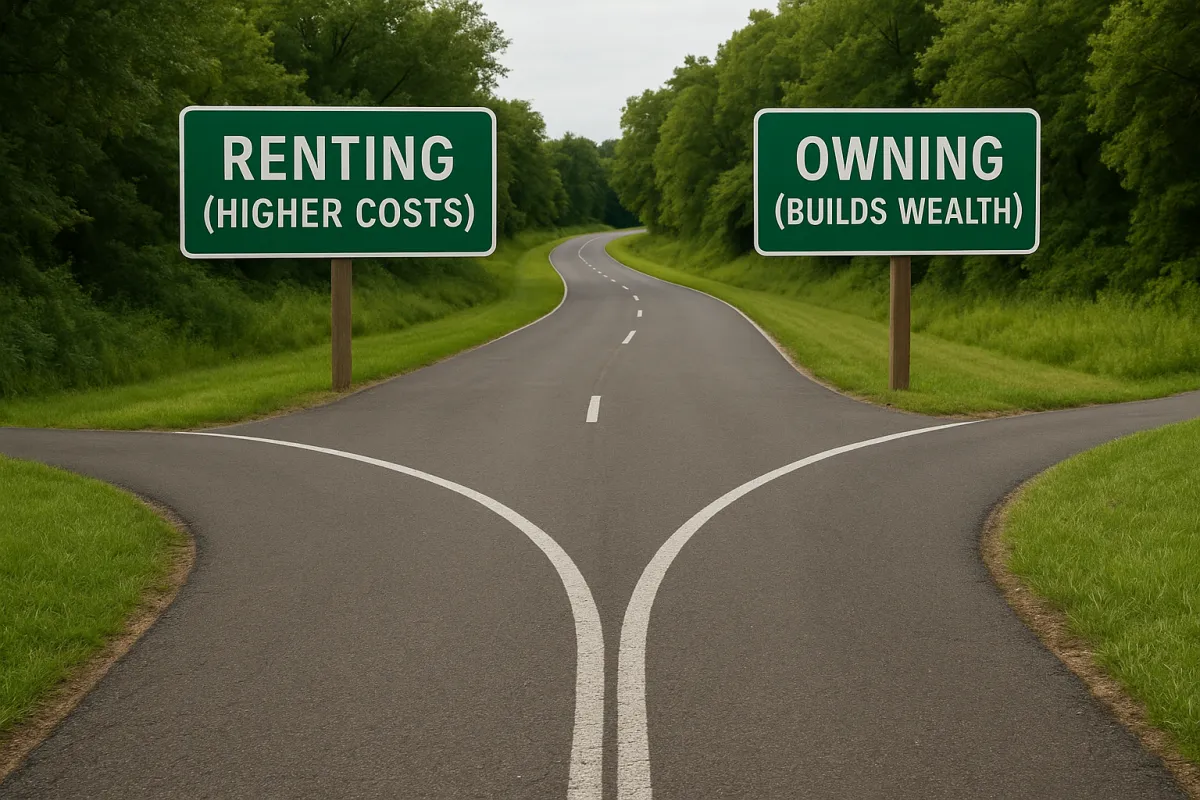
Hidden Costs of Renting: How Buying Could Actually Save You Money
Think renting is cheaper than owning? At first glance, monthly rent might seem lower than a mortgage payment. But when you add up hidden costs over time, renting often becomes the more expensive option. In today’s shifting market, understanding the real numbers could change the way you think about your next move.
When you rent, your costs aren’t limited to just your monthly payment. Many tenants overlook the hidden expenses that pile up year after year—and never build any equity in return.
Let’s break down why buying could not only be smarter for your future but could actually save you money faster than you think.
The Hidden Costs of Renting
1. Rising Rent Prices
Most renters experience annual rent hikes. Even a modest 3% increase adds up dramatically over a few years. For example, a $2,000 rent today could easily become $2,600+ within 10 years—and you'll have no equity to show for it.
2. Security Deposits
Every time you move, you’re typically paying a security deposit equal to one month’s rent (or more). Even if you get most of it back, moving often means tying up thousands of dollars repeatedly.
3. Moving Costs
Packing, hiring movers, setting up new utilities—it all adds up. Frequent moves can cost renters an extra $2,000–$5,000 every few years.
4. No Tax Benefits
As a homeowner, you may be eligible for mortgage interest deductions, property tax write-offs, and other incentives that renters can’t claim. That’s real money staying in your pocket at tax time.
5. Missed Wealth Building
Homeownership builds equity. Even modest appreciation combined with loan pay-down can add tens of thousands to your net worth in just 5–7 years. Renting builds nothing.
Real-World Example
"Chris and Maya" rented a one-bedroom apartment for $2,200/month in Bethesda. Over five years, they paid over $132,000 in rent. Meanwhile, condos in their neighborhood appreciated by 18%. Had they purchased a $350,000 condo instead, their monthly payment would have been similar—and they’d now have nearly $70,000 in home equity.
Renting felt easier at first—but long term, it cost them far more.
Is Buying Always the Cheaper Choice?
Not always. You should consider:
How long you plan to stay (ideally 3+ years to offset closing costs)
Your readiness for home maintenance responsibilities
Whether you have stable income and savings for a down payment
But if you plan to stay put, today's market offers low down payment options, grants, and first-time buyer programs that make owning far more accessible—and often financially smarter—than you might think.
How to Start Saving Money as a Homeowner
Explore down payment assistance programs — you might not need 20% down
Work with a realtor (like me!) who knows local grant programs and incentives
Get pre-approved with a lender familiar with first-time buyers
Set a realistic budget that includes maintenance and insurance costs
The right strategy could have you paying less per month—or building wealth faster—than continuing to rent.
Finding the right first home—and the right programs to save money—can feel overwhelming without guidance. As a local realtor, I specialize in helping tenants like you turn smart financial moves into lasting homeownership.
Curious if buying would save you money? Contact me today — I'll run the numbers with you and help you see if homeownership is the smarter move.

